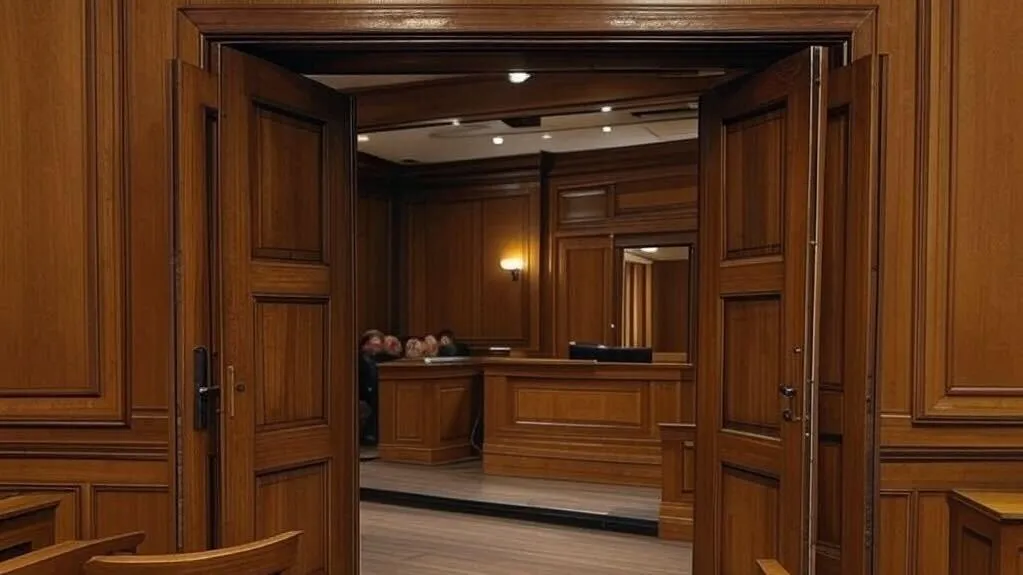News Flash

Employers Exploit Legal Loopholes
Workers' compensation, the pursuit of timely justice is paramount for injured workers seeking due benefits. However, a concerning trend has emerged where certain parties exploit procedural mechanisms, notably the filing of reconsideration petitions, to intentionally delay proceedings. This practice raises serious process challenges and underscores the importance of upholding procedural safeguards to ensure fairness.
A Case Study in Procedural Delay
Ledezma v. Kareem Cart Commissary, Establishing Precedent
The Workers' Compensation Appeals Board addressed this issue directly in the en banc decision of Ledezma v. Kareem Cart Commissary and Mfg. In this case, the WCAB consolidated multiple instances where petitions for reconsideration were filed with the apparent intent to disrupt or delay proceedings. The Board issued a notice of intent to impose sanctions, emphasizing that such actions are sanctionable offenses. This decision aligns with appellate courts' consistent stance that procedural manipulation must be curbed to uphold fairness within the statutory scheme governing workers' compensation.
Implications and WCAB's Stance
The WCAB's decisions underscore a firm stance against the misuse of procedural petitions. Filing for reconsideration of non-final orders is not only impermissible but also subject to sanctions, including monetary penalties and the awarding of reasonable expenses to the opposing party. The ruling reinforces process rights for injured workers and seeks to reduce erroneous deprivation of rightful benefits.
The misuse of reconsideration petitions to delay workers' compensation proceedings undermines the integrity of the system and hinders timely justice for injured workers. Superior Courts and appellate courts have continually emphasized the need for efficient adjudication, reinforcing the importance of relevant evidence in resolving disputes. Furthermore, procedural tactics designed to cause delays contribute to significant administrative burdens, affecting the efficiency of disciplinary proceedings within the broader judicial framework.
Legal Precedents and Broader Judicial Considerations
Legal rulings in the United States have long highlighted the necessity of adhering to procedural fairness. The Supreme Court and Superior Courts have reinforced that due process cannot be circumvented by strategic filings aimed at delaying justice. Ensuring that relevant evidence is presented within a reasonable period of time is critical to maintaining integrity in the system. These rulings extend beyond workers' compensation into broader legal matters such as criminal trials, where procedural fairness dictates that a trial judge must evaluate evidence objectively and ensure compliance with rules of evidence.
In cases where a guilty plea is entered, courts continue to emphasize the significance of burden of proof and its role in upholding justice. Within workers' compensation, a similar principle applies: claimants must not be subjected to undue process claim delays due to procedural abuses. The Supreme Court and other judicial bodies have long recognized the importance of maintaining procedural safeguards to prevent erroneous deprivation of rightful claims.
If you have been a victim of insurance fraud, please contact the proper authorities. If you believe that your insurance certificate is fraudulent, please submit it through our contact form at CheckMyCert.org.

News Flash

Employers Exploit Legal Loopholes
Workers' compensation, the pursuit of timely justice is paramount for injured workers seeking due benefits. However, a concerning trend has emerged where certain parties exploit procedural mechanisms, notably the filing of reconsideration petitions, to intentionally delay proceedings. This practice raises serious process challenges and underscores the importance of upholding procedural safeguards to ensure fairness.
A Case Study in Procedural Delay
Ledezma v. Kareem Cart Commissary, Establishing Precedent
The Workers' Compensation Appeals Board addressed this issue directly in the en banc decision of Ledezma v. Kareem Cart Commissary and Mfg. In this case, the WCAB consolidated multiple instances where petitions for reconsideration were filed with the apparent intent to disrupt or delay proceedings. The Board issued a notice of intent to impose sanctions, emphasizing that such actions are sanctionable offenses. This decision aligns with appellate courts' consistent stance that procedural manipulation must be curbed to uphold fairness within the statutory scheme governing workers' compensation.
Implications and WCAB's Stance
The WCAB's decisions underscore a firm stance against the misuse of procedural petitions. Filing for reconsideration of non-final orders is not only impermissible but also subject to sanctions, including monetary penalties and the awarding of reasonable expenses to the opposing party. The ruling reinforces process rights for injured workers and seeks to reduce erroneous deprivation of rightful benefits.
The misuse of reconsideration petitions to delay workers' compensation proceedings undermines the integrity of the system and hinders timely justice for injured workers. Superior Courts and appellate courts have continually emphasized the need for efficient adjudication, reinforcing the importance of relevant evidence in resolving disputes. Furthermore, procedural tactics designed to cause delays contribute to significant administrative burdens, affecting the efficiency of disciplinary proceedings within the broader judicial framework.
Legal Precedents and Broader Judicial Considerations
Legal rulings in the United States have long highlighted the necessity of adhering to procedural fairness. The Supreme Court and Superior Courts have reinforced that due process cannot be circumvented by strategic filings aimed at delaying justice. Ensuring that relevant evidence is presented within a reasonable period of time is critical to maintaining integrity in the system. These rulings extend beyond workers' compensation into broader legal matters such as criminal trials, where procedural fairness dictates that a trial judge must evaluate evidence objectively and ensure compliance with rules of evidence.
In cases where a guilty plea is entered, courts continue to emphasize the significance of burden of proof and its role in upholding justice. Within workers' compensation, a similar principle applies: claimants must not be subjected to undue process claim delays due to procedural abuses. The Supreme Court and other judicial bodies have long recognized the importance of maintaining procedural safeguards to prevent erroneous deprivation of rightful claims.
If you have been a victim of insurance fraud, please contact the proper authorities. If you believe that your insurance certificate is fraudulent, please submit it through our contact form at CheckMyCert.org.


